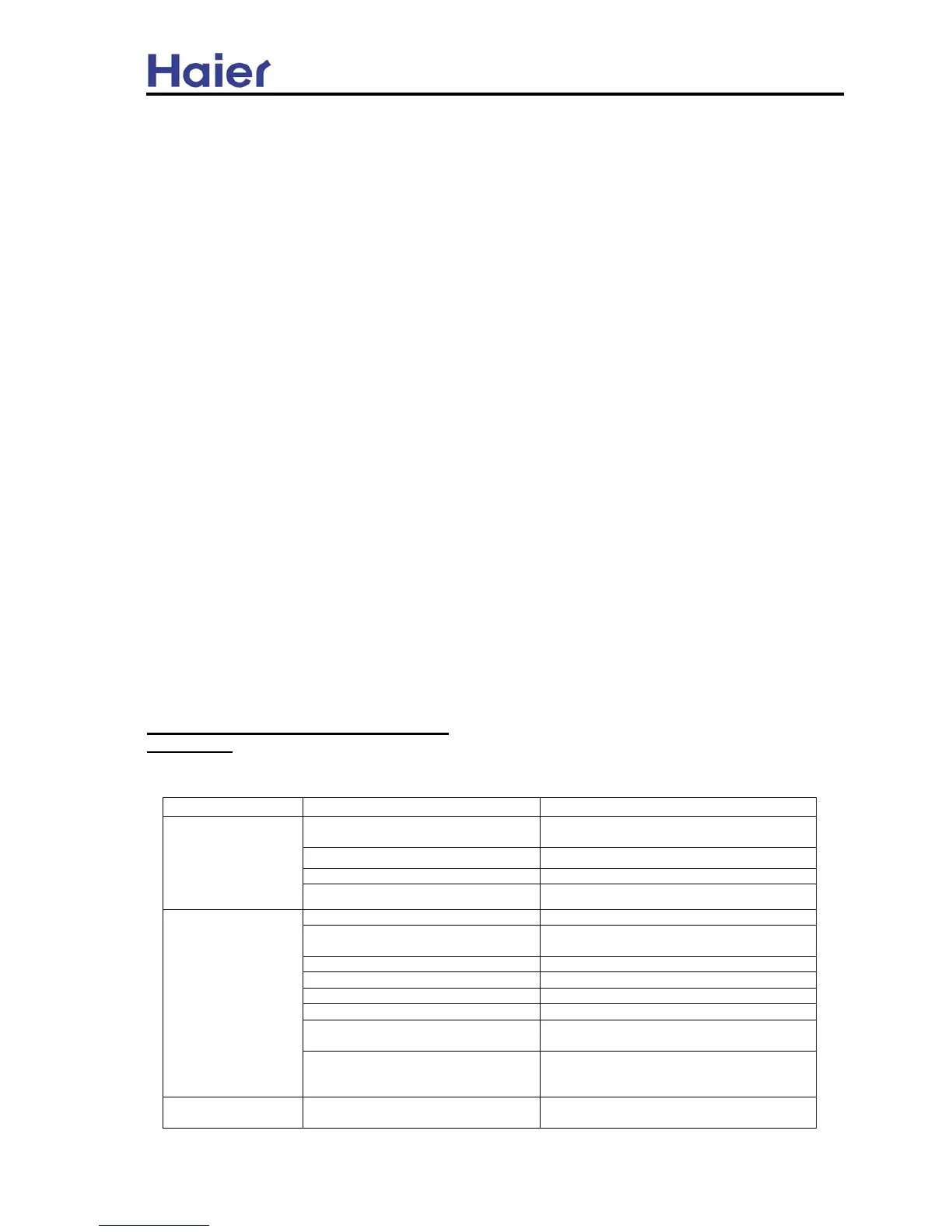30
Warnings:
1.
2.
3.
TACK APPROPRIATE STEPS TO KEEP CONTAMINATIONS OUT OF THE LINES, WHILE
THESE LINE ARE OPEN TO ATMOSPHERE.
USE A OFMINIMUM 5% SILVER FOR COPPER TO COPPER CONNECTIONS.
USE A OF MINIMUM 35% SILVER FOR COPPER TO STEEL CONNECTIONS.
operation. Replace any if necessary.
J.
WHEN BRAZING, PURGE DRY NITROGEN THROUGH THE LINES TO PREVENT THE
FORMATION OF OXIDES.
G. Inspect all other components such as check valve and electrical components for proper
H. After all connections are made, open the service valves and pressurize to 150 psi with dry nitrogen,
I. After leak testing ,recover any test refrigerant.
Keep with (A) subpoints.
Use the largest connections and hoses possible to expedite the process.
charging procedures.
Evacuate through both high and low side connections to the system.
Break each vacuum with dry nitrogen to 3.0 psi.
K. Charge with clean, new or reclaimed R-22 refrigerant. Charge in accordance with proper
L. Re-check the system 24 hours of run time to verify the unit is free of acid.
Evacuate to a level of 1500 microns twice and 500 microns the last time.
7. Other Check Points
A. Verify the operating voltage is within the specified range.
E. Inspect all the other electrical components for proper operation.
F.
I.
! WARNING – Disconnect all electrical power to the unit before servicing. Disconnect power to
both the indoor and outdoor units. NOTE: There may be more than one electrical disconnect
switch. Failure to shut off power can cause electrical shock resulting in personal injury or death.
B. Check that all wiring connections are tight.
C. Verify that all fuses or circuit breakers are of the proper type and operational.
G. Verify all ducts and air moving device are sized and operate properly.
Verify all the system are in correct position.
D. Verify the air conditioning operates properly in cooling.
Verify the thermostat and subbase are correct and operate properly.
H. Verify the refrigerant piping is sized correctly and not pinched.
Leak test with liquid detergent. If a leak is found, repair it after removing the nitrogen, and recheck.
Symptom Possible Cause Remedy
Power off or loose electrical
connection
Make sure main switch is ON. Check and
tighten all connections.
Incorrect thermostat setting Set thermostat correctly
check the valve coil or replace it
No cooling/heating
replace it
Dirty filters Clean & replace
Indoor air blockage Check supply registers and return grills for
blockage.
Clear away leaves and other debris
Improperly sized unit Recalculate load
Improper airflow Check – should be 400CFM/Ton
Incorrect refrigerant charge Charge correctly per instruction.
Air, non-condensable or moisture in
system
Recover refrigerant, evacuate & recharge,
add filter drier
Insufficient Cooling
Incorrect voltage At compressor terminals, voltage must be
within 10% of rating plate volts when unit is
Water on floor or in
furnace trap
Defective 4-way valve
Blocked outdoor coil
Compressor without pump function
Blocked condensate drain and “P” Remove blockage and clean drain lines, verify
operation of condensate pump.
running.
Central Air Conditioning Model: Condensing Unit, HC13-D2
10.2 Troubleshooting Guide
